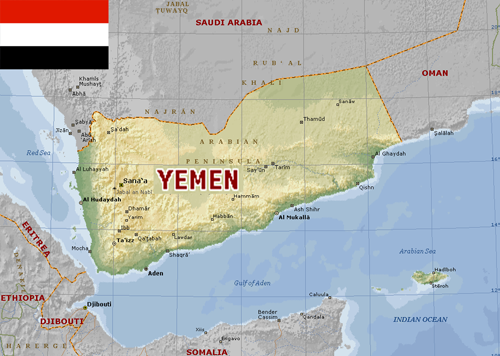By Catherine Shakdam
Ever since the Houthis - a tribal militia group organized under the leadership of Abdel-Malek Al Houthi – trailed across Yemen’s highlands in challenge of Al Islah - a Sunni radical faction acting an umbrella for several sub-political groups such as the Muslim Brotherhood and the Salafis – keen to reclaim for themselves the land and the freedom which were stolen from them, the group has been the unwarranted victim of a vicious and rather systematic vilifying media campaign.
Labelled as rebels and dissidents, the Houthis have been branded a devilish force, a power which would have to be neutralized and disposed of if ever Yemen were to recover some modicum of political stability.
Accused of being Shia revivalists by the foreign press, few analysts and journalists have actually cared to look past the sectarian labels and political motivations to understand that the very group they have been so intent on discredited has been what has kept this one impoverished nation of the Arabian Peninsula together.
From the moment the Houthis chose to rise in defiance Sunni radicals in northern Sa’ada in late October 2013, thus prompting a second revolutionary wave which would eventually led to the ouster of former Prime Minister Mohammed Basindwa and a cabinet reshuffle, forces have worked to side-line the group, intent on preventing a truly popular movement from taking root into the Peninsula.
The pariah of Yemen political world, the Houthis were met with suspicion and contempt the very second they stepped from under the shadow of Al Islah, having understood that for Yemen to truly have a shot at political self-determination, radicals would have to be challenged.
At such a time when Yemen revolution had been all but hijacked by those elements which helped direct and harness its power only to serve their political benefits, thus rendering Yemen a pawn into the Brotherhood’s hand, it was the Houthis which reignited Yemenis’ fire by taking up arms against the group.
As Yemen stood in complete submission to the political might of Al Islah, its state institutions overrun by those who engineered the fall of one dictatorship to see rise in its place another, it was the Houthis who stroke a blow at Al Islah’s powerhouse, which house Yemen thought too big to ever fail.
Should the Houthis have stood idle, withdrawn behind their regional borders, Yemen 2011 uprising would have been for nothing. And yet, the group continues to be vilified.
But where would Yemen be today should Abdel-Malek Al Houthi had chosen not to intervene?
Would Yemenis have managed to overturn President Abdo Rabbo Mansour Hadi’s decision to revise his oil-subsidies reform? Would officials have heeded their people demands for a cabinet overall and the immediate implementation of the NDC resolutions – National Dialogue Conference? In all truth probably not …
While the media have taken a liking to criminalizing the Houthis, at times likening the group to a terror organization to better justify their irrational critic, it has become evident that the Houthis were instrumental in freeing Yemen from the suffocating clasp of Al Islah, a party which accounts within its ranks well-known extremists. Sheikh Abdel-Mageed Al Zindani, a powerful tribal leader and high ranking member of Al Islah for example has figured on America’s most wanted terror list since 2004.
Even today, as the Houthis have thrown their weight in opposition of Al Qaeda, blocking and paring terror militants’ advances toward the capital, Sana’a, no credit has been given to this one Shia faction.
Dozens upon dozens of Houthi operatives have died fighting Al Qaeda, hundreds have been injured and yet all the world has chosen to see has been those men affiliation to Shia Islam.
But where would Yemen be should the Houthis have retreated back to the highlands? And more importantly where have been Yemen armed forces in this fight against terror?
At such a time when Yemen has experienced an unprecedented terror insurgency, with reports of Al Qaeda movements at all four corners, it is the Houthis who have stood vigil. Where the government feared to go, the Houthis went. Where the military dared not venture, the Houthis conquered.
And yet the group has been shunned by all, their motives questioned.
Even though the Houthis proved time and time again that their leadership carries no other ambition than to see democracy and popular will prevail, suspicion remains an indelible tar which cannot wash away.
But what are the Houthis’ faults? In all objectivity what have the Houthis done to deserve such bile from state officials and the press?
Did the group laid claim over the government when its men seized control of the capital? No. What the Houthis did instead was flush out Islahi militants and enforce a government reshuffle, in keeping with popular will.
Did the Houthis pillage the capital as Al Islah did in 1994 when its militants walked into Aden - former capital of South Yemen - ? No. What the group did however was to return formerly stolen lands to their rightful owners.
All the Houthis have ever done was to ensure that Yemen would be left to make its own choices and yet they have been met by ingratitude and intolerance, discriminated against on the basis of their faith.
But if not for this one faction of northern Sa’ada where would Yemen be today? Those are the questions we should be asking.
/149

